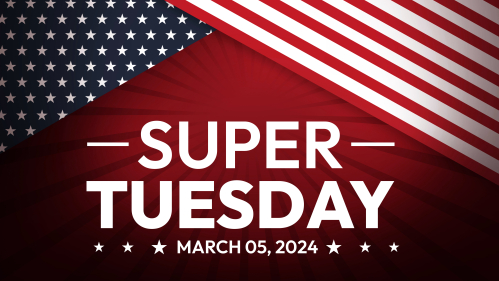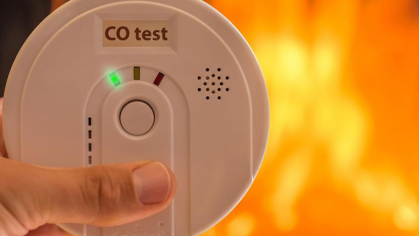A Rutgers expert discusses the most significant day of this year's primary campaign
Super Tuesday on March 5 marks a pivotal moment in the presidential primary process, with a multitude of states and delegates in play. The outcomes on Super Tuesday serve as a significant step in determining who will be the Democratic and Republican party nominees in the November election.
“The upcoming primaries on Super Tuesday are poised to solidify the positions of President Joe Biden and former President Donald Trump as the presumptive nominees for their respective parties,” said Ashley Koning, an assistant research professor and director of the Eagleton Center for Public Interest Polling (ECPIP) at Rutgers University–New Brunswick.
Koning discusses Super Tuesday and what to expect.
Can you provide an overview of what Super Tuesday is? Why is it considered important in the electoral process?
Super Tuesday is the day in the presidential primary process where the most states vote and, as a result, the most delegates are awarded. Historically, Super Tuesday came about because a collection of southern states wanted more power in the electoral process by joining together on the same day early in the primary season; now, various states across the entire country participate. About a third of all delegates are at stake for both the Republican and Democratic contests spanning 16 states and one U.S. territory. Therefore, after a few early primaries and caucuses, Super Tuesday acts as the main event that could very well determine who has the best chance to ultimately win the party's nomination.
It’s why we see a lot of candidates historically drop out after Super Tuesday, since their chances to win the majority of delegates drastically dwindle if they have a poor showing on Super Tuesday.
What can voters expect, and does it have any specific implications for residents of New Jersey?
Voters can expect what they have already been expecting for almost this entire election cycle so far: President Joe Biden and former President Donald Trump will all but officially be their parties’ nominees after Super Tuesday. Trump is leading Nikki Haley in all Super Tuesday states - by double digits in most of them – and has won every other state up to this point, earning her only victory in the Washington, D.C. primary. Biden has handedly won every Democratic primary so far despite minor competition from primary challengers and an “uncommitted" write-in campaign in Michigan in protest of Biden’s handling of Gaza.
Once again, New Jersey will not be an important factor for the presidential primary race once its own primary date rolls around; it usually never is since it is so late in the primary calendar and most delegates have already been assigned to determine a presumptive nominee. But New Jersey voters have plenty else to deliberate over on primary day this June given the contest over U.S. Senator Bob Menendez’s seat and the especially hot primary race on the Democratic side.
What factors should we watch for and where does Pres. Biden fit in?
With Super Tuesday seemingly already decided, it’s hard to imagine what other important takeaways might come out of these primaries. But given the overall predictability of the day, we can look at how Biden and Trump’s performances might give us clues about the general election. How well does each candidate perform, especially for Trump when it comes to suburban voters and college-educated voters? Haley has been besting Trump in this area, and the erosion of support for Trump with these two voting blocs arguably cost him the 2020 election.
Does Haley suspend or drop out as some of her funding dries up, or does she stay in longer in case Trump’s legal troubles catch up to him? As for Biden, can he come out of Super Tuesday with a strong showing that rallies the base? Or alleviate mounting doubts caused by economic perceptions, Gaza, his flailing approval numbers and his unfavorable head-to-head polls in the last several months that have him losing his previously held lead to Trump for the general election?
How does polling shape the narrative and influence decision-making during this time?
Polling can educate but also influence, especially with the way in which the news cycle obsessively reports on the “horse race” these days. Primary pre-election polling can impact voters, swaying them one way or the other to vote if polls show an incredibly close race or a supposed clear winner before voters can even cast a ballot. Polls can impact donors and how much they decide to give a candidate if they think the candidate has a fighting chance or is too far behind to catch up. And polls can shape what the candidates themselves say on the campaign trail to rally voters and entice turnout.
While polling is one of the few quantitative measures we have during an election season to tell us how close the race might be, we need to remember that polls are estimations of public opinion with inherent statistical error and are snapshots in time that only tell us how people feel in that moment – not how they might actually feel on Election Day, if they even vote at all.



